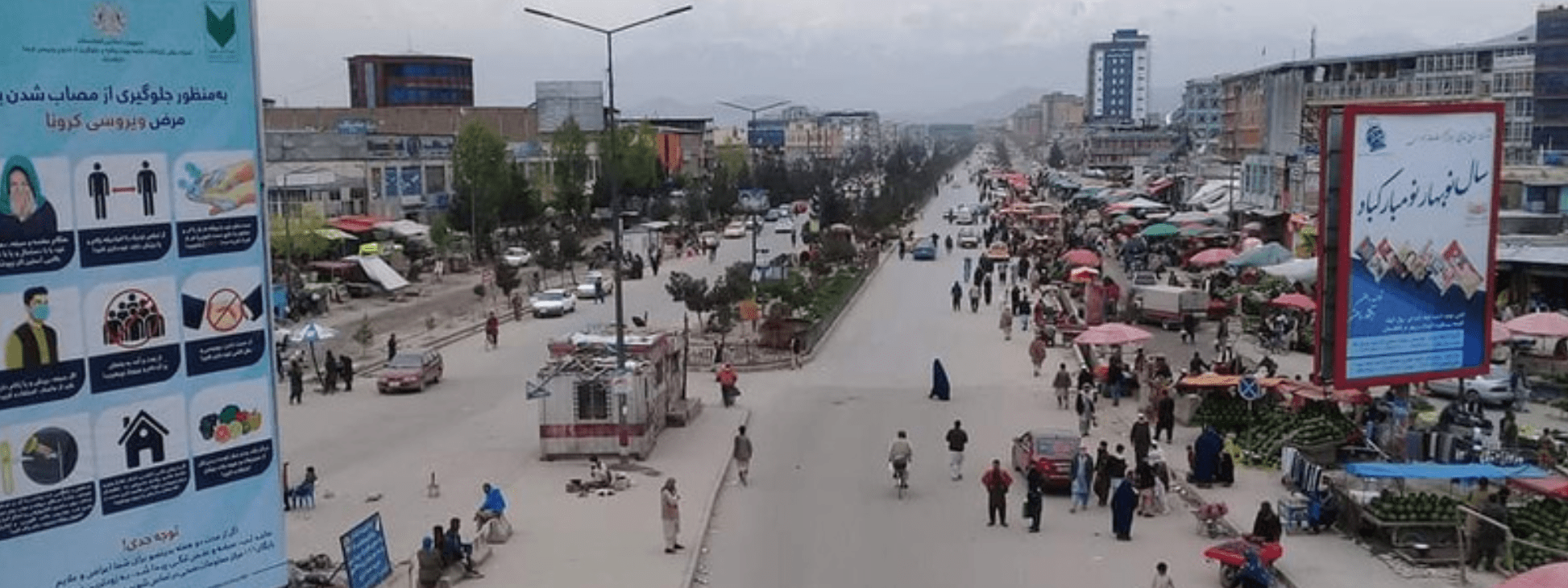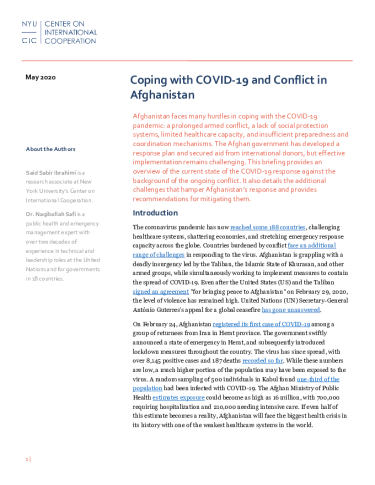Afghanistan faces many hurdles in coping with the COVID-19 pandemic: a prolonged armed conflict, a lack of social protection systems, limited healthcare capacity, and insufficient preparedness and coordination mechanisms. The Afghan government has developed a response plan and secured aid from international donors, but effective implementation remains challenging.

This briefing by Said Sabir Ibrahimi and Dr. Naqibullah Safi provides an overview of the current state of the COVID-19 response in Afghanistan against the background of the ongoing conflict. It also details the additional challenges that hamper Afghanistan’s ability to deal with the crisis and provides recommendations for mitigating them.
Download the full briefing here.


